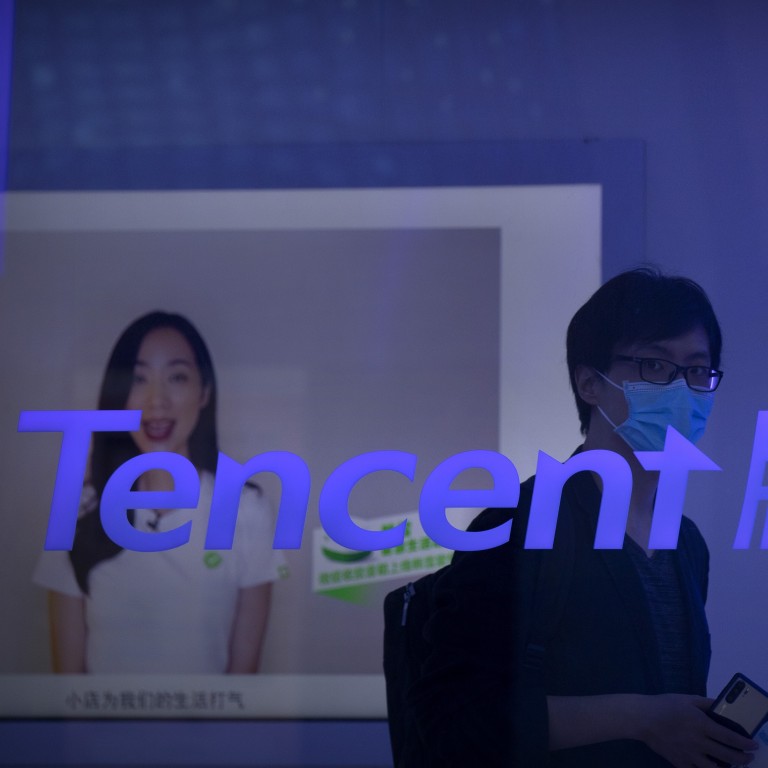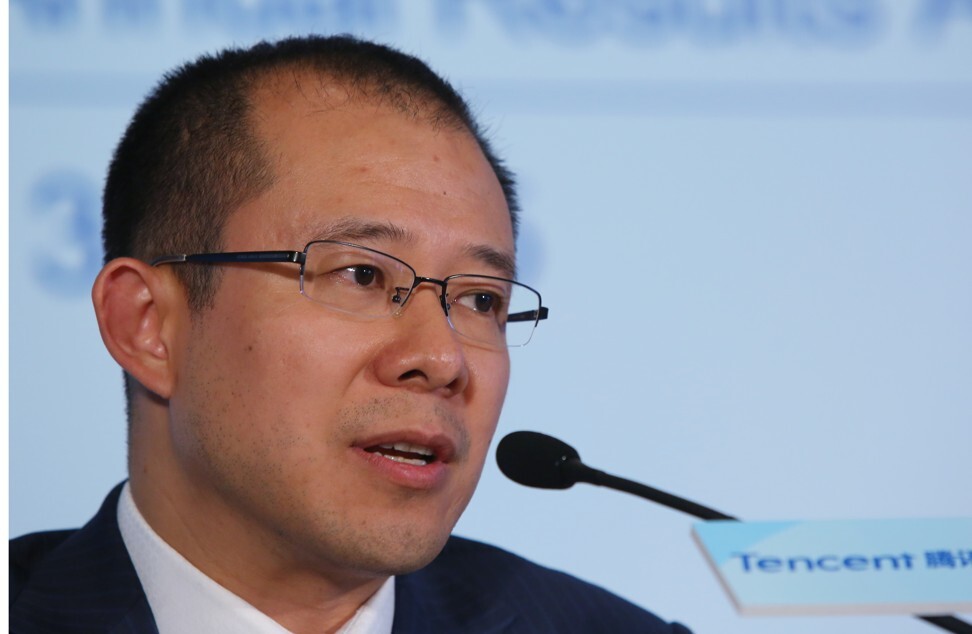
Tencent games not a focus of antitrust initiative, president says, as firm posts 89 per cent rise in quarterly profit
- The internet giant reported a net profit of US$5.8 billion in the third quarter, beating analysts’ estimates
- Revenue rose 29 per cent to US$18.9 billion
“Tencent’s business, strategy and philosophy fit very well with the spirit of the regulatory framework,” said Tencent president Martin Lau Chi-ping in a conference call with analysts on Thursday after the market closed. “As you can see our platforms are open in nature, we work with a lot of partners.”
“For games, we essentially have individual products rather than platforms, I think they are less of the [draft guidelines’] focus,” he said.
Lau’s comments come after Tencent, which runs the world’s largest video games business and China’s largest social network, reported a better-than-expected 89 per cent jump in net profit for the quarter to September 30.
“Our observation is that such regulation is not new, and it’s also not unique to China,” he said. “As technology companies become bigger and more important to the economy, I would say more regulation reflects the new reality as needed. It’s not just the case for China, but it’s also the case globally … The intention is to prevent misconduct, and also ensure long term healthy growth for the industries.”
“We’ll work very constructively with the regulators to ensure our compliance with the paper,” he added.

“There will not be a lot to change in our strategy,” he said “If you look at the principles … in our fintech business, number one is really compliance with regulations, and this is something that we have done very methodically in the past.”
Shenzhen-based Tencent is one of China’s largest players in the fintech industry. The company’s WeChat Pay, which runs inside its ubiquitous social messaging app WeChat, is one of the country’s top two mobile payment services.
Lau said the country’s microlending regulations do not affect Tencent’s flagship micro loan service WeiLiDai, which is available through WeChat, because that is operated by Tencent-backed WeBank.
“WeBank, which is a fully licensed bank, has been in full compliance with banking regulations, which is the regulated part of the entire industry,” he said.
“If you look at our [fintech] revenue. It’s actually quite diversified between payment and the lending business as well as wealth management and … insurance.”
Tencent insists it is a collaborator, not a disrupter, of China’s financial market
Hong Kong-listed Tencent on Thursday reported a net profit of 38.5 billion yuan (US$5.8 billion) in the third quarter, up from 20.4 billion yuan in the same period last year, boosted by strong growth in gaming and payment services. That beat the 30.3 billion yuan consensus estimate from 17 analysts surveyed by Bloomberg.
Revenue rose 29 per cent to 125.4 billion yuan, up from 97.2 billion yuan a year ago, ahead of the 123.8 billion yuan consensus estimate by 27 analysts.
“This quarter marked the second anniversary of our strategic organisation upgrade, which was intended to enhance our strength in consumer internet and extend our presence to industrial internet,” said Tencent chairman and chief executive Pony Ma Huateng in a statement on Thursday after the market closed.
“While the upgrade was designed to bear fruit over the longer run, we are already seeing initial benefits in areas such as consolidating our advertising services, rejuvenating our product and content platforms, growing our cloud and SaaS [software-as-a-service] businesses and building an internal open source code base.”
China drafts new antitrust guideline to rein in tech giants
Shenzhen-based Tencent’s share price rebounded with a 4.72 per cent increase to close at HK$577 on Thursday, before its latest quarterly results were announced. The company’s share price has jumped 53.6 per cent since the start of the year, hitting a record high of HK$633 in intraday trading on Monday.
Revenue from Tencent’s value-added services business segment, which cover its video games and social networks, increased 38 per cent to 69.8 billion yuan, as online games grew the fastest at 45 per cent since the third quarter of 2017. That was primarily attributed to revenue growth of smartphone games, including domestic titles Peacekeeper Elite and Honour of Kings.
Honour of Kings had averaged 100 million daily users for the first 10 months of this year, which makes it the first game in history to do so, Tencent said earlier this month as it celebrated the game’s fifth anniversary. It was the world’s most lucrative game in September after racking up US$240 million in sales, with 96 per cent of its revenue coming from China, according to Sensor Tower.
“Key mobile game titles in the pipeline will continue to bring in further growth to the company,” said GF Securities analyst Yang Linlin in a report on Tuesday.
Tencent says Honour of Kings becomes first game to average over 100 million daily users across any platform
The number of wealth management customers under LiCaiTong increased more than 50 per cent from a year ago, which was at a similar rate of expansion as its aggregated customer assets.
“We believe that LiCaiTong’s penetration rate among our payment users is still quite low, and we are seeking to further grow our wealth management customer base at a measured rate via long-term initiatives such as investor education programmes and an expanded product offering,” Tencent said in a statement on Thursday.
While Beijing’s new antitrust initiative is a cause for concern, its impact on Tencent is expected to be limited compared with Alibaba, according to Morningstar analyst Dan Baker.
“For Tencent, based on our estimates, the major potential regulatory risk exposure is on its social network segment,” Baker wrote in a report on Wednesday. That segment includes Tencent’s streaming video, music and game-streaming services.


